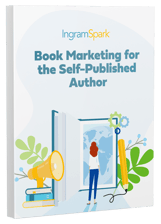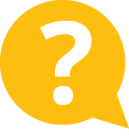

Metadata is everywhere, and it’s a crucial component in marketing your book. Your book’s most vital metadata includes such basic information as your book title, author name, author bio, book description, publication date, etc.
Not only does metadata connect readers with your book, but it can also increase your sales potential. Ultimately, it’s what connects your content to your prospective readers, and discoverability is your biggest asset. It ensures your readers can find you simply by entering words that describe your book into a search engine.

Creating good book metadata takes an initial time investment but once it’s done, you’ll have a great marketing tool to help sell your book.
Keywords are one of the most critical parts of your metadata. The more specific the keywords, the more likely the person searching for those specific words will find your book among the search results.
Make your book more discoverable with keywords that are relevant, and phrases related to your book. Then, you can write a more keyword-rich book description that will give the search engines reason to bring attention to your book when users search for those particular words and phrases.
BISAC codes describe and categorize your book with standard codes accepted by the book industry. They are essential for librarians, booksellers, and other publishing professionals to place your book in the correct BISAC categories. Be sure to cover all your bases in choosing your codes, but don’t be misleading.
A few tips for selecting your BISAC code:


Maintaining consistent descriptions and author information on your website and social media accounts is important.
After making sure your book metadata is consistent and effective, you need to continue to lay the groundwork for more conventional marketing methods.
One of the most important aspects of marketing your book is writing a good book description. Your chances of gaining visibility and remaining visible are better when your book description is focused, impactful, and accurate.
There are two types of book descriptions:

An effective book description should start with a clear and compelling headline, followed by a detailed explanation that lets the reader know what to expect from your book. Finally, it should end with a strong closing, identifying why readers should be interested in your book.
Here are a few other tips for writing a good description:


A book foreword isn’t necessary, but it is an important part of your introductory material. Written by someone other than the book’s author, the foreword provides a third-party endorsement supporting the book and the importance of its material.

The more relatable and better-known the foreword author is, the more comfortable your reader will be with your book. In approaching someone to write your foreword, let them know why you think they are the right person for the job, and give them options for providing you with a foreword, given any time constraints or other limitations they may have.

Although many things have changed in the publicity and media industries, book press releases are still important. It’s important to know how to write a good press release, as it is the foundation of your promotional platform. Don’t assume you know how to write one simply because you’re a good writer. Learn how the professionals do it and follow industry-accepted formats and styles.
Your book press release should begin with a headline that builds anticipation for potential readers. It may be either direct (calling attention to the primary sales feature of your book) or indirect (enticing readers to want to learn more), and it may be newsworthy, tap into readers’ emotions, or give a directive.
Once you’ve gotten their attention with the headline, the body copy of the press release should follow up on that headline. Give your readers sentences that flow well and present important facts, following the pattern and pace set by the headline.

There is no one, proven approach to getting publicity for your book. We suggest 15 important publicity tips to consider when you’re trying to get media coverage for your book. These tips include:
More than just getting shelf space, today’s book marketing is about appealing to a variety of readers and employing various means of creating impressions for your book. You may utilize traditional book marketing tactics and a mix of digital marketing and book publicity.

While publicity is especially helpful in establishing an author’s brand and giving him or her clout in the publishing world, digital marketing is about getting people to click on an ad and buy your book. Digital marketing is necessary, and it’s one of the best ways to connect with readers. Both are effective and important methods of book promotion.
Promoting your book with social media is an incredible way to connect with readers and promote your book to larger audiences, at a low cost or for free. The more people talking about your books, the more noise they make, and the more other readers will take notice.
While you might be overwhelmed by the various social media platforms, we recommend registering for all of them, if only to create bios that point to your author website. There has been a renewed focus on connecting directly with readers via influencer marketing, resulting in a huge impact on book sales. In addition to Facebook, Instagram, and Pinterest, some of the most popular and effective platforms you can use to market your book on social media are:
Amazon Author Central—Not only should your book be available for sale on Amazon, but you should also be taking advantage of Amazon Author Central.
TikTok— Don’t underestimate the power of TikTok to market your book. It’s now the third largest of the Big Five worldwide social networks, and BookTok, the TikTok subcommunity, is an incredible way to connect with a diverse audience.
A few things to keep in mind:
Make sure you really know how to find your target audience. Your social media presence will start to grow organically when you understand who you’re writing for.
Find a consistent voice. Always be yourself, but in a way your readers can connect to.
Create unique, shareable content and post something at least once a week.
Making videos on social media is a great way to get personal with your followers.
Finally, be aware that there are some unique pitfalls in promoting your books online. Avoiding them can help you gain more followers, more attention for your book, and hopefully, more sales.

Before launching your website, decide on your domain name. You should buy the domain name yourself with your email address and credit card. This ensures that you receive all updates and/or renewal notices for subscriptions and webhosting. Cost for your domain will depend on how you build it, whether using a DIY platform such as Wix or WordPress or hiring a website designer/developer to handle it for you.
Keep in mind that many developers don’t know much about marketing, particularly how to promote a book. So check out a developer’s portfolio before you hire them. There are a number of questions to ask yourself before choosing and committing to a developer for your site, including:

When you contacted potential developers, were they responsive?
What are the per-hour charges for changes and updates?
What is the cost for additional pages?
What is the turnaround time for incorporating updates, and how much does that cost?
Once you’ve set up your author website, how do you measure its success? By tracking traffic to your site. This data is essential. The easiest and most effective way to track such progress and discover what’s resonating with your visitors is by connecting your site to Google Analytics with a bit of tracking code. The data you receive may be confusing at first, so be sure to focus on such important information as:

Your author website is your primary online presence and your author platform. This is where people will learn more about you and your books, and it’s the only place you have complete design and editorial control.
There are a number of things to consider when setting up your site and using it as part of your overall book marketing strategy, including:
You probably already know how important it is to blog about your book. Blog traffic doesn’t happen overnight, but with consistent effort, your author blog can build momentum with time.
Article writing is a great way to grow your audience and build a community. Some book promotion ideas for crafting an effective article are noted below.

Marketing for self-published books is an essential part of the overall publishing process and takes proper planning. It starts with creating good book metadata and identifying the right keywords for your book. This, coupled with a good book description, could lead to potential sales just for being in the right place at the right time when a reader performs a search for information. Utilizing social media platforms and creating an author website are also very important steps in targeting and finding your audience. Finally, you must get out there and cultivate relationships with booksellers, pitching your book, advertising it in unconventional places such as grocery stores, and setting up events at libraries or local bookstores.
For more information and book marketing ideas, download our complete guide to marketing for self-published books.
By clicking the "submit" button, you are agreeing to receive future marketing e-mail messages from IngramSpark.